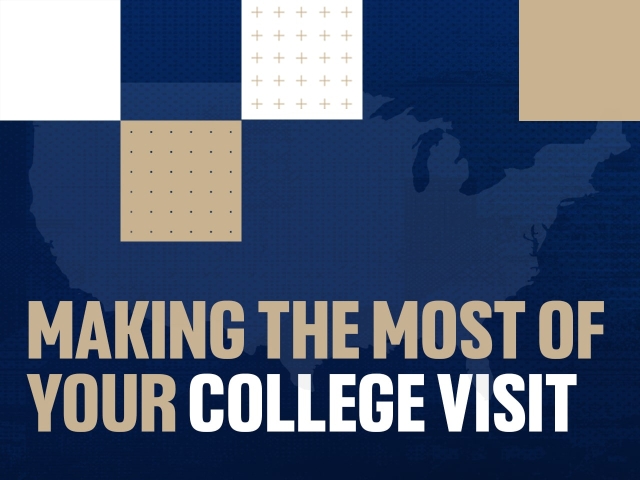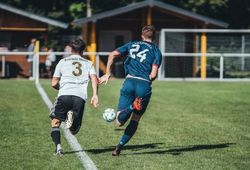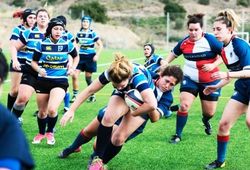For decades, the incredible talent and hard work of student-athletes had enriched universities and brands, yet athletes themselves were prohibited from earning a cent for themselves. With that era now over, the dawn of Name, Images and Likeness (NIL) has created unprecedented opportunities, allowing student-athletes to cash in on their personal brand.
NIL has been more than a passing trend; it’s a thriving industry which has seen a seismic shift in how athletes are valued, creating a vital income stream and building a foundation for post-collegiate sport career success. Whether you are an Olympic prospect, a future pro or a dedicated college athlete, your personal brand can be your greatest asset – and the smartest athletes are already seizing this moment, converting their stories into currency.
How can this be done effectively? At FirstPoint USA, we’re committed to helping athletes navigate the college athletics landscape and this now includes maximising your NIL potential. Here are our Top 20 tips for student-athletes looking to turn influence into income.
Top 20 NIL Strategies for Student-Athletes
Building Your Foundation
1. You don’t need a million followers – you need a loyal audience; even 1,000 fans can drive good deals. Brands value engagement and authenticity more than raw numbers. A smaller, dedicated audience—often called a "micro-influencer" following—will generate higher conversion rates for a brand than a large, passive one. Focus on building a community that trusts you, as this loyalty is a powerful selling point to potential sponsors.
2. Most NIL deals are small and that’s OK. The average deal is worth $2,700 but those who stay consistent see consistent growth. Don't wait for the multi-million-dollar contracts; they are very rare. The path to significant NIL earnings is paved with many small, consistent deals. These initial opportunities provide valuable experience, build your portfolio, and, most importantly, show brands that you can successfully execute a partnership, leading to larger and more frequent opportunities over time.
3. Your social media is your resume. Brands don’t Google you first – they search your Instagram. Think of your social media profiles—Instagram, TikTok, X, etc.—as your professional portfolio. Brands and recruiters use them to gauge your personal brand, aesthetic, professionalism, and audience reach. Ensure your content is consistent, high-quality, and aligns with the image you want to project. A clean, organized, and positive online presence is the first step in attracting serious deal opportunities.
4. You’re not selling posts – you are selling influence. The product you offer is not a single photo or video; it’s your ability to motivate your followers to take action, whether that's clicking a link, buying a product, or attending an event. Shift your mindset from 'content creator' to 'brand partner' and focus on demonstrating the real-world impact you have on your community.
5. Your story is your differentiator. Most athletes post their highlights. The smart ones post their journey. Every athlete has highlights, but few share the grit, hard yards and sacrifices that happens behind the scenes. Brands want to connect with a relatable human being. Share your training struggles, your academic challenges, your recovery process, and your life outside of sport. This authentic narrative is unique to you and makes your content far more engaging than just game footage.
6. A strong brand gets you recruited, paid and remembered. A well-defined personal brand serves multiple purposes. It attracts college coaches looking for character, it makes you a highly marketable prospect for NIL deals, and it creates a legacy that lasts long after graduation. Clarity, consistency, and credibility are the three pillars that ensure your brand is not just recognized, but also valued and remembered.
The Business of Branding
7. Agents can take 15 – 20% of your deal. But you can learn to negotiate and manage deals yourself until you hit consistent six figures. In the early stages of your NIL journey, consider self-management. Numerous online resources and NIL marketplaces can help you find, negotiate, and execute deals, saving you the typical agent commission. Learning these business skills early is invaluable; you only need to look for formal representation once the volume and complexity of your deals demand professional, full-time help.
8. Less than 2% of college athletes will go pro. Your brand is what keeps paying after your sport ends. NIL is also bout career planning beyond sport. For many student-athletes, the money and connections you make today through personal branding will transition into your post-athletic career. The discipline, entrepreneurship, and networking involved in NIL are skills that recruiters in any industry will value highly.
9. Every deal is a business deal. Set up an LLC, bank account and contracts early. To protect yourself legally and financially, you must treat NIL as a business from day one. Consult a professional to set up a legal entity (like an LLC), create a separate business bank account for tax purposes, and always use a written contract for every deal, no matter how small. This professionalism signals seriousness to brands and safeguards your future.
10. Content is currency. No content = no visibility = no deal. In the digital economy, your consistent output of quality content is the asset that drives opportunities. Brands cannot engage with or measure an athlete who isn't posting. Establish a regular content calendar and focus on providing value to your followers, ensuring you stay visible and relevant in the ever-flowing social media feed.
11. Local brands are gold. They want hometown heroes, start there before chasing Nike. The most accessible and often most loyal NIL partners are businesses in your immediate community—local restaurants, car dealerships, or gyms. They have a vested interest in supporting local talent and reaching a geographically relevant audience. These initial local deals are a crucial step in building your NIL portfolio and gaining the experience needed to then approach national brands.
12. Your first deal should teach you more than is pays you. View your early NIL opportunities as a learning curve. Focus less on the dollar amount and more on mastering the process: negotiation, contract review, content creation that works, and tax documentation. The knowledge and efficiency gained from your first few deals will maximize the profitability and success of every deal that follows.
Execution, Professionalism and Tips for Parents
13. Posting once a week isn’t enough. Consistency builds trust. Social media algorithms and audience expectations reward frequency. Sporadic posting prevents you from building momentum. Develop a sustainable posting rhythm—whether it's daily stories, three posts a week, or a weekly video—to keep your audience engaged and ensure brands see you as a reliable and professional partner.
14. Data beats opinions. Track engagement, story views and saves. Brands care about numbers, not vibes. When pitching to a brand, you need to prove your value using data. Learn how to access and analyze your social media analytics. Brands want to see high engagement rates (likes, comments, shares) and 'saves,' as these metrics demonstrate that your audience finds your content valuable and actively interacts with it.
15. If your athlete isn’t online, they’re invisible to brands and recruiters. This is a simple truth of the NIL era: the absence of a professional, active online presence is a missed opportunity. While privacy is important, having a dedicated platform allows brands to find and vet you. An athlete must be discoverable to participate in NIL, making a purposeful online presence non-negotiable.
16. Parents, you’re the CFO. Learn contract terms, tax implications and brand safety rules. For student-athletes under 18 or those new to financial independence, parental involvement is critical. Parents should take the lead in understanding the legal and financial obligations of NIL, including state-specific laws, NCAA rules, income tax requirements, and ensuring the brand partnership aligns with the family's values and athlete's image.
17. Protect your athlete’s time and mental health. Not all opportunities are good ones. NIL deals add another level of responsibility to an already packed student-athlete schedule. Learn to say no to opportunities that are time-consuming, do not pay fairly, distract from academic and athletic priorities, or aren’t the right brand fit. Carefully vet deals to ensure they are beneficial and sustainable, prioritizing well-being over making a quick buck.
18. The best NIL earners act like entrepreneurs, not influencers. Influencers focus primarily on their public image, but entrepreneurs focus on building a sustainable business. Top NIL athletes think strategically—they identify market gaps, create their own merchandise, form long-term partnerships, and diversify their revenue streams. Adopt a business mindset to turn short-term deals into a lasting career asset.
19. A brand that is clear, consistent and credible compounds over time. Your personal brand is an investment. Clarity means knowing what you stand for. Consistency means delivering that message repeatedly. Credibility means keeping your promises and maintaining trust. When you follow these principles, your brand value doesn't just grow; it compounds, making every new deal easier to secure and more valuable.
20. You can’t outsource effort, education beats representation every time. The foundation of NIL success is your own effort in content creation, networking, and personal brand building. While representation can manage the paperwork, understanding the business is your most powerful tool. Invest time in learning about marketing, the industry and the financial scope of deals.
The era of Name, Image, and Likeness (NIL) has permanently changed the game, giving you, the student-athlete, an unprecedented opportunity to be both a competitor and an entrepreneur. Your social media is your professional resume, and brands value an authentic personality, an engaged audience and quality storytelling content. Remember, your personal brand is a long-term asset that will continue to pay dividends long after your college career concludes.
You can't outsource effort; your dedication to building and managing your brand is the single most important factor in realizing your full NIL potential.
Watch our recent webinar with NIL expert Kristi Dosh to explore more tips on maximizing the opportunity.
This blog features content from Dr Santia Deck: follow her Instagram channel here.




